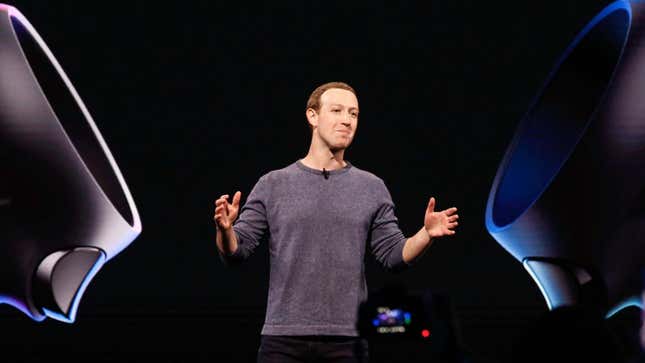
Usually gaming hardware prices get cheaper over time. But Meta is bucking that trend and raising the price of its entry-level Quest 2 VR headset by $100. The company formerly known as Facebook says it’s to help pay for innovation, a move that comes as Mark Zuckerberg’s social media company scrambles to fend off the rise of TikTok and billions in recent losses.
Beginning in August, the Meta Quest 2 will go from $300 to $400 for the 128GB model, and from $400 to $500 for the 256GB one. Meta wrote in a post announcing the change that it’s “invested billions of dollars to help nurture a thriving VR ecosystem” since the early days of PC and mobile, and that the massive price hike will “help [it] continue to invest for the long term.”
The point of pricing the Meta Quest 2 so low to begin with—the same as the Nintendo Switch but for a wire-free VR headset—was to aggressively drive early adoption and help lift up a market that has stalled for years. With the $100 hike, the Quest 2 will still be the cheapest headset on the market, but the 33% increase will still put the entry-level technology out of the reach of many more people as a result.
While a hard pill to swallow from a company that made over $7 billion in profits last quarter, the temporary retreat isn’t shocking in the face of recent market turmoil. Meta’s stock price has fallen in half since the beginning of 2022. New privacy changes instituted on Apple devices reportedly cost the company some $10 billion in revenue. An overhaul of the Facebook and Instagram apps to try and copy TikTok have resulted in a very public backlash by the Kardashians.
Meta has been burning billions on moving VR technology forward over the last couple of years, but with his empire facing existential challenges, founder and CEO Mark Zuckerberg is now bracing employees for a more brutal era of corporate austerity. Rather than cut funding for R&D, raising prices is one way to keep his bet on a lucrative VR metaverse going.
“We can either reduce funding for future stuff, or we can take more pain in terms of a little bit less profitability,” he told staff last month in-between threatening layoffs, according to The Verge. “Constitutionally, it’s more painful for me to slow down the progress that we’re making towards the long term than it is to have a short-term difficult period.”
In the meantime, Meta is preparing to launch its higher-end Project Cambria headset later this year. And while partner projects like Splinter Cell VR were recently canceled, Ghostbusters, Among Us, and The Walking Dead VR games are still on the way. So too is Sony’s new PSVR 2 headset. Still without a price or launch date, the PS5 manufacturer has continued teasing new details about the updated technology.

